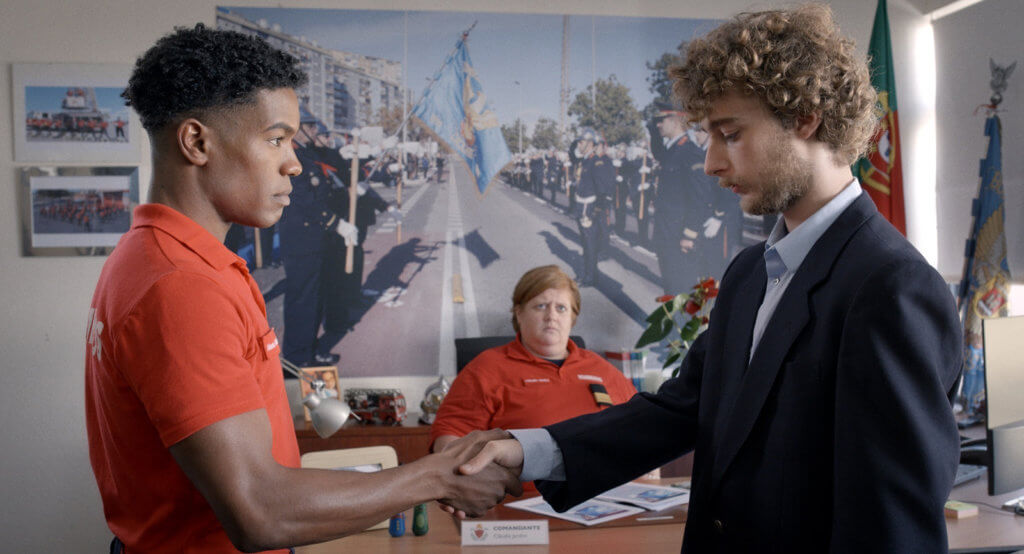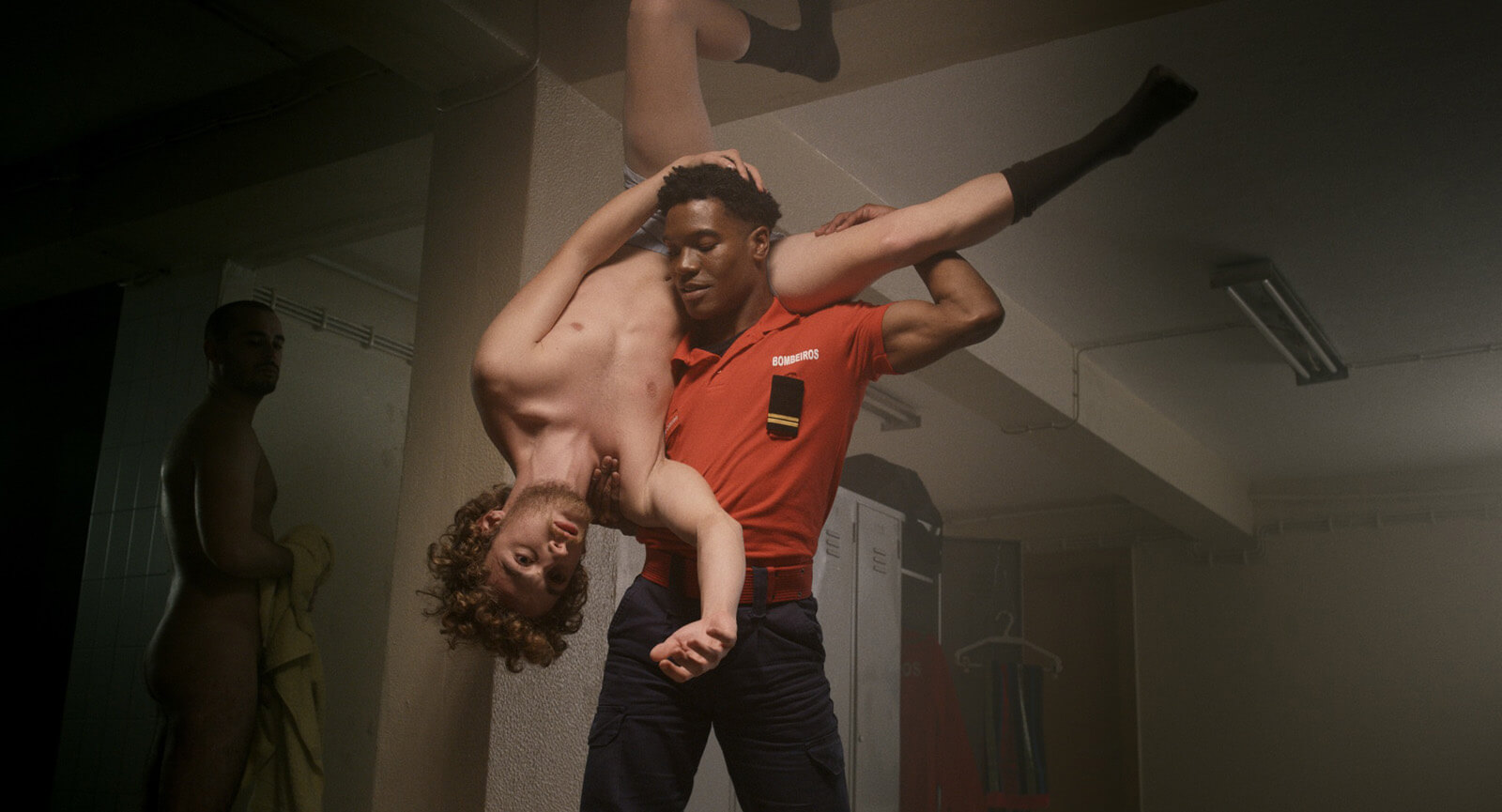Before the first screening of Will-o’-the-Wisp at the Directors’ Fortnight (the staid coinage “premiere” is not used), director João Pedro Rodrigues thanked the Fortnight’s head programmer Paolo Moretti for supporting radicality in cinema. His film Will-o’-the-Wisp, or Fogo-Fátuo in Portuguese and Feu Follet in French, proves exactly the point – it’s a 67-minute, self-dubbed “musical fantasy” that’s too happy being “cheap” to even smell the main Competition. Yet this doesn’t mean it’s a bad movie; on the contrary, it speaks to the limitations of the main Competition’s preoccupation with prestige and glamour.
The film opens in the year 2069, as if we need any more indication of the film’s silly, joyous tone. Portugal’s King Alfredo, on his deathbed, reminisces his youth, specifically when he suddenly wanted to be a firefighter because of wildfires spreading across the planet’s forests. At firefighter training, he is assigned under the stud Afonso, who he quickly falls in love with for no apparent reason other than horniness. Interspersed throughout the film are lighthearted musical and dance numbers and homoerotic re-enactments of famous paintings for the fire station’s annual men’s calendar.
Even this plot description does not begin to capture the delightful, rebellious queerness of the film. Will-o’-the-Wisp is not bound by the filmmaking rules that dictate what it can or cannot do. I cannot bring myself to spoil any of its transgressions, but I can guarantee that they’re all bonkers, hilarious, biting, and carefree. As a queer act, is this as aggressive or politically motivated as activism or militarism like ACT UP? Obviously not, but in the context of Cannes and world cinema, defying the practices of “prestige” is a radical act. And while it jabs Serious Topics like the monarchy’s existence and locker room homophobia, it has fun while doing so. How many films in the main Competition can we speak this of?

This is Queer Desire: the Movie, in which every scene is somehow a manifestation of queer desire, even when it’s just people having dinner or staring at a forest. Camp actressing? Of course you are included. Every scene of this movie is so highly specialized in its campy humor and phallic fixation that it will probably fly over the heads of a straight audience. Who cares, asks João Pedro Rodrigues? Why do we have to make a movie for the straights?
But as the audience hollered and guffawed, they also understood when to calm down. Just as well as exaggerating Alfredo and Afonso’s attraction comedically, the film shows it as gentle queer intimacy. Despite laughing at ourselves, gays are also able to recognize the rarity of finding someone in the community. Going even deeper than that, Rodrigues confronts the uncomfortable fetishes living in any gay interracial relationship that the picturesque sweet romances usually avoid. Despite its constant contentment with staying cheap and lowbrow (this is pleasant to watch, but never even attempts to light or frame itself prestigiously), it shows a level of intelligence that comes from authentic gay experience.
So committed is this movie to railing against the rules that it harms itself with a 67-minute runtime and disjointed structure. Each scene works as a separate entity, but shows little to no flow from one to another. Alfredo and Afonso’s romance is so barely developed that it’s like Rodrigues immediately gave up after writing himself into a corner. This feels like a first draft of a film. Is this part of Rodrigues’ radicality? It might very well be, but that doesn’t excuse it from the audience feeling irked and blue-balled. We want more gay joy! Why limit it to only 67 minutes?
Out of João Pedro Rodrigues’s exclusively gay filmography, I have only seen one other film: his directorial debut O Fantasma, which is an explicit gay stalker movie that retreats increasingly into the night and immorality. Will-o’-the-Wisp is its exact opposite: a laugh-out-loud ray of gay romantic sunshine, happening in broad daylight. Actors baring their all is almost a given in a João Pedro Rodrigues movie, yet they of course still should be commended. His movies usually receive very limited to no US distribution, yet at the Directors’ Fortnight (and other more off-center festivals like Locarno) he is given a thousand people’s standing ovation. It’s the heteronormative audience’s loss.
